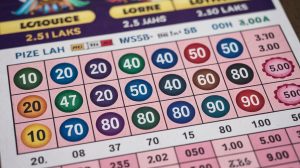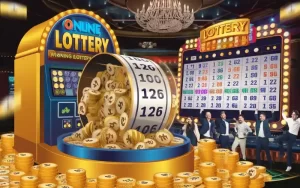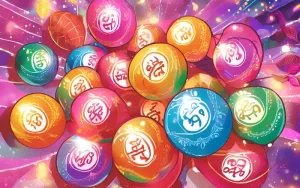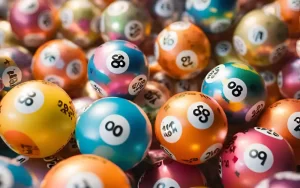Lottery games are popular worldwide, and many people dream of winning a big jackpot. While winning the lottery is largely a matter of luck, there are some strategies that can help improve your chances. This article will discuss how to predict lottery numbers, explore various lottery prediction techniques, and delve into some formulas people use in an attempt to beat the odds.
Understanding the Basics of Lottery Prediction
Before we jump into specific techniques, it’s essential to understand that lotteries are random by design. Every draw is independent, meaning previous outcomes do not directly affect future results. Despite this, some people believe that certain methods can help you identify patterns or trends that could lead to a better selection of numbers. While there’s no foolproof way to predict winning numbers, using a structured approach can help make your lottery experience more enjoyable and potentially more rewarding.
Lottery Prediction Formulas: Do They Work?

There is no guaranteed lottery prediction formula that will accurately predict the winning numbers every time. However, some people have created formulas and mathematical models to help identify potentially favorable numbers. Here are a few lottery prediction formulas you can consider:
Probability Formula
This formula involves calculating the probability of a certain number or combination being drawn. While it doesn’t guarantee success, understanding probability can help in making informed choices.
The Law of Large Numbers
The Law of Large Numbers suggests that over many trials, the results will converge to the expected average. Some players apply this principle to lottery predictions by assuming that over time, all numbers should appear with roughly equal frequency.
Hot and Cold Number Theory
This theory is based on the observation of hot numbers (frequent appearances) and cold numbers (infrequent appearances). Some players think choosing a balance between hot and cold numbers can improve their chances.
Statistical Analysis Techniques
Statistical approaches can be used to analyze past draw data to identify patterns that may not be immediately obvious. Techniques like regression analysis or cluster analysis can be applied for this purpose.
The Psychology Behind Lottery Predictions
Many people are drawn to the idea of predicting lottery numbers because it gives them a sense of control over an inherently random event. This psychological factor can make lottery prediction appealing, even if they do not statistically improve your chances. Here are a few psychological aspects to consider:
- Gambler’s Fallacy: This is the belief that if something happens more frequently than normal during some period, it will happen less frequently in the future (or vice versa). In reality, each lottery draw is independent, and past results don’t influence future outcomes.
- Confirmation Bias: People tend to remember times when their predictions were close to the winning numbers and forget when they were completely wrong. This can make prediction methods seem more effective than they really are.
- Hope and Optimism: Lottery players often use predictions as a way to maintain hope and excitement about the possibility of winning. This can make the lottery more enjoyable, even if it doesn’t increase the chances of winning.
Conclusion
While learning how to predict lottery numbers and using various lottery prediction techniques can add an extra layer of fun to your lottery experience, it’s essential to remember that lotteries are games of pure chance. There are no surefire lottery prediction formula that will guarantee a win. However, by understanding different strategies such as frequency analysis, wheeling systems, and statistical techniques, you may be able to make more informed choices about which numbers to play.
Whether you use hot and cold number theories, random selections, or mathematical calculations, the most important thing is to play responsibly and enjoy the game. The thrill of possibly winning, along with the excitement of strategizing, can make playing the lottery a rewarding experience on its own.






